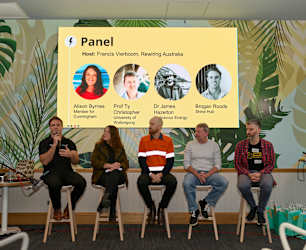By Susie Crick, president of Surfrider South Coast
Last month I attended the global #BreakFreeFromPlastic
From the conference we learned that we need the frame to move further upstream to stop plastic production to avoid an avalanche of plastic that will choke our planet. As a global community we must agree to cut plastic production by at least 75% however we should go beyond that. This requires us to redesign the way we live. We should shift the needle towards a regenerative economy and move away from an extractive economy. Growing a recycling industry is not the answer, reducing plastic production is. Single-use plastics are not an essential item and we need to challenge the whole plastics economy to move away from single-use plastics.
False solutions are being offered by the fossil fuel industry and plastic producers, instead of realistic alternatives. Companies are adopting the language of the environmental movement and supporting the global plastic treaty, yet we’re not seeing the changes on the ground even though they talk the talk. Companies are resistant to change their business models if there’s a risk to their profit margins and they’re spinning strategies to confuse us, known as ‘greenwashing’ instead of reducing production.
Producers must take full responsibility for their products. Through loopholes in terminology Australia exports some of our waste as ‘fuel’ in the form of Refuse Derived Fuel (RDF) and Process Engineered Fuel (PEF) to Asian countries and the United States. In Louisiana in the United States there is an area known as ‘Cancer Alley’ which is home to over 200 petrochemical plants and refineries. The residents are suffering from respiratory issues and many of these people are frightened to use their voice as they are amongst the poorest communities in the country.
The life cycle of plastic is an oxymoron, we should rename it the death cycle of plastic. Plastic does not give life, rather it is a man made skin covering the earth. It diminishes the health of the communities who live near plastic ‘energy’ plants. Chemical recycling is chemical pollution. Advanced recycling is advanced pollution and the new incinerator. Incinerating plastic is the transfer of one toxic substance into another. It is this ‘new’ form of burned plastic energy that is stealing quality of life from people who are presenting with cancers and health respiratory issues because of the unsafe, unregulated plastic chemicals they breathe to become victims of the circular economy of pollution.
We are addicted to the convenience of plastic without fully understanding the consequences of plastic in our daily lives. We can’t manage what we can’t measure so exactly how much plastic passes through our hands each week?
Let’s start this awkward conversation.
Visit Surfrider's website






